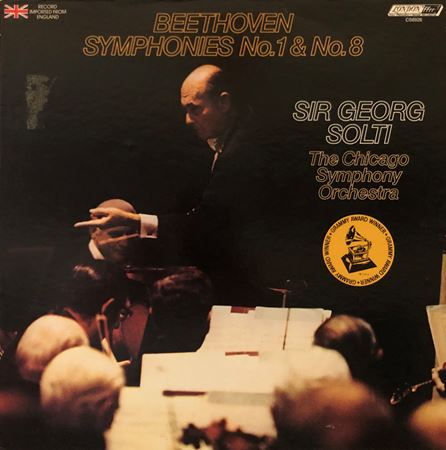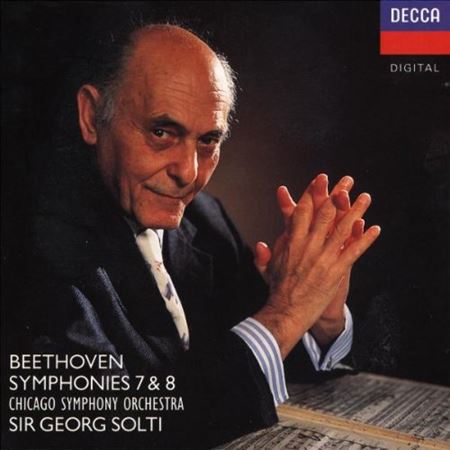Detail of title page to score of Beethoven’s Eighth Symphony
Fritz Reiner Collection, Rosenthal Archives of the Chicago Symphony Orchestra Association
“We know with certainty that seldom was a work of this kind brought to completion under more adverse conditions than the Eighth Symphony,” wrote Frederick Stock, the Chicago Symphony Orchestra‘s second music director, in Talks About Beethoven’s Symphonies. The year 1812 was challenging for Beethoven, as he endured “domestic difficulties of the most embarrassing and annoying kind . . . added to this the agony of his ever-increasing deafness, and life’s burden must have been unbearable. And yet the general character of the F major symphony is added proof that adversities, no matter how severe, could not overwhelm him or daunt his spirt, since the temper and color of this work show no trace of suffering. . . . the Eighth Symphony [is] the work of a genius rising above his world, reaching beyond his own time, and that this work was only a stepping-stone for much greater things to come.”
The Eighth Symphony “was misunderstood from the start,” writes CSOA scholar-in-residence and program annotator Phillip Huscher. “The Eighth is a throwback to an easier time. The novelty of this symphony, however, is that it manages to do new and unusual things without ever waving the flag of controversy.”
Founder and first music director Theodore Thomas first led the Chicago Orchestra in Beethoven’s Eighth Symphony on March 25 and 26, 1892, at the Auditorium Theatre.
Sir Georg Solti and the Chicago Symphony Orchestra and Chorus first recorded Beethoven’s nine symphonies between May 1972 and September 1974 for London Records. The recordings were ultimately released as a set (along with three overtures: Egmont, Coriolan, and Leonore no. 3); that set won the 1975 Grammy Award for Classical Album of the Year from the National Academy of Recording Arts and Sciences. The Eighth Symphony was recorded at Medinah Temple on November 6 and 9, 1973. Ray Minshull was the recording producer, and Kenneth Wilkinson and James Lock were the balance engineers.
Between September 1986 and January 1990, Solti and the Orchestra and Chorus recorded the complete Beethoven symphonies a second time, again for London Records; and again, the recordings were ultimately released as a set (along with two overtures: Egmont and Leonore no. 3). The Eighth Symphony was recorded in Orchestra Hall on October 17 and 18, 1988. Michael Haas was the recording producer and Stanley Goodall was the balance engineer.
This article also appears here.





